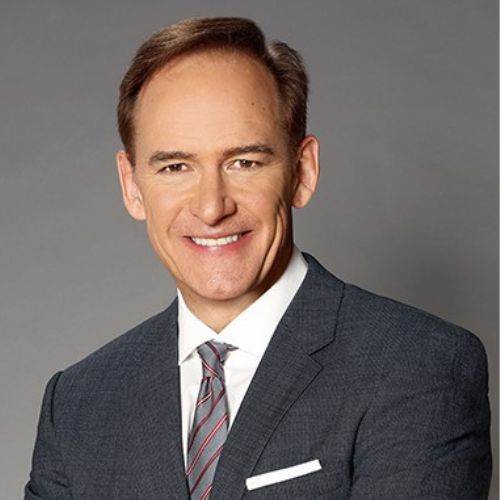Episode 378 – June 29, 2023
Listen On: Apple Podcasts | Spotify | Google Podcasts
Guest Information

Phil Soper
Phil Soper is the President and CEO at Royal LePage, specializing in leadership and strategy. Phi Soper was named President of Royal LePage in October 2002, and Chief Executive in January 2004. In August 2003, he directed the restructuring of Royal LePage into a public company traded on the Toronto Stock Exchange, with the successful launch of what is now named Bridgemarq Real Estate Services (TSX: BRE).
Prior to joining Royal LePage in 2000 as General Manager, Corporate Relocation Services, Phil Soper was General Manager of IBM Canada’s Information Technology consulting and services business. Phil graduated from the University of Alberta with a Bachelor of Commerce and from the University of Western Ontario’s Ivey Executive Program.
Episode Summary
Royal LePage President and CEO, Phil Soper, stops by to give us the 2023 Canadian real estate report card. Is the market healthy? Which sub-markets should we watch? And will Canadian real estate prices drop in the second half of 2023? Find out!
Keep your finger on the pulse of Vancouver’s real estate market with our Live Wire email newsletter.
Who is Phil Soper?
I’m the CEO of Bridgemarq Real Estate Services which is the parent company for a number of other brands, including Royal LePage. We have companies in Quebec and we even have a virtual business. We’ve been around for 110 years!
I like to say I worked my way up from the top. I used to consult in IT services and spent 15 years with IBM. I was moving around with IBM when I started my family. IBM asked me to move again but I was in Toronto with two young kids and didn’t feel like moving anymore.
A friend of mine was running a Brookfield company at the time, which is a majority owner of our firm, and let me know they were looking for someone. So I had a meeting and took the leap into real estate in 2000. My first job in real estate was running the firm!
I always tell students I talk to not to underestimate the power of luck. When the dot com bubble burst in 2000, IBM had to lay off tons of people and hasn’t really recovered since. Meanwhile, real estate has been very successful over the last 25 years.
Keep your finger on the pulse of Vancouver’s real estate market with our Live Wire email newsletter.
Why real estate?
I believe you have to have a passion for the industry you’re in. We want to help people realize their personal real estate dreams or business dreams through commercial real estate.
Real estate is something that interests most of us. 4.4 million Canadians invest in real estate, which is 11% of the population, and 26% of the population intend to. That shows you how much interest there is in real estate.
15% of the 4.4 million Canadians invested in real estate don’t own their principal residence and most of that 15% are under 35. So they’re still living in their mom’s basement but they’re landlords!
Real estate has been very good to generations of people in Canada. If you’re in a nation that is growing, the people there need a place to live. It’s a beautiful thing to be a conduit to that and earn a living from it.
Is the Canadian real estate market healthy?
The Canadian real estate market is unhealthy because of house price inflation. Vancouver has been at the heart of that challenge for a long time. A healthy market is not one in which prices far out-run wages. You don’t want the price of your product to spin so far out of control that it excludes generations of people.
Other than that, it’s an incredibly healthy industry. We’re ranked #1 in population growth amongst developed countries. That’s necessary because Canada is an older nation.
People are living longer and have the cash to stay in their homes. But they’re retiring at a greater rate than young people are entering the workforce. That’s a big problem that we solve through immigration, attracting the best and brightest in the world to Canada. But we need to find places for them to live.
It’s a good news/bad news situation in Canadian real estate. We have demand like nowhere else on earth but we don’t have the product to satisfy that demand.
This isn’t a new problem. The tipping point was 1995. So it’s been almost 30 years of underbuilding in Canada. And it has really accelerated in the last five years.
Why have we been underbuilding in Canada for so long?
Part of it is tax policy at the municipal level. Part of it is conflicting agendas. Part of it is due to our aging population; older populations generally get more conservative and are more reluctant to change. They don’t want densification in their neighbourhoods.
As cities get bigger and governments get more complex, costs rise. Every big city in Canada is under huge fiscal pressure. The timeline from having the idea for more housing to handing keys to a family has stretched longer and longer, and it’s gotten more expensive.
The terrorist attacks on 9/11 caused lots of concern for builders, which was then amplified by the 2008 recession. Builders got more conservative. Prior to that, builders would build ahead of demand. But post-recession, they build to demand. And because projects take a long time, you can never meet demand.
Keep your finger on the pulse of Vancouver’s real estate market with our Live Wire email newsletter.
How do we increase our home building in Canada?
Tax policy. Policy makers can provide tax incentives for developers to build to projected demand. The government can shoulder some of the risk. But that’s tough to get governments to do when they don’t have the budget for it.
It’s a big challenge! We are making progress; all levels of government finally agree that supply is the issue. BC led the way with frivolous legislation designed to make voters happy and artificially quell demand. If you pick bad guys who are popular amongst the uneducated, you create another problem.
Housing isn’t something people get involved in frivolously. People get involved in housing because they need a place to live, or as investors who are providing a place for someone else to live. That’s why you can’t artificially quell demand.
The big problem is execution of new supply. Governments have made huge promises that sound like they will make a difference but then fall short on execution.
Has the 2023 real estate market been a surprise for you?
Yes, but we got the direction right. Back in 2020,CMHC was predicting a collapse in real estate prices. But we didn’t see that because of the huge supply shortage we have in Canada. We forecasted that prices would dip in 2020 but return by the end of the year. In 2021 we predicted prices would rise again but not to the extent that they did.
In 2023, we anticipated it would take longer for prices to recover after the huge interest rate raises by the Bank of Canada. But after Q1, we had to revise our forecast by 10% because prices were rising so quickly. After Q2, we’ll have to revise and increase our forecast again for all of the major cities in Canada.
As forecasters, we tend to underestimate the amplitude of our cycle changes. Employment has been way stronger than anyone predicted and the housing market has recovered at a way faster clip.
The hottest city in 2023 is actually Calgary! You can get three standard, 2-storey, detached homes in Calgary for the price of one in Vancouver.
When oil prices collapsed in 2014, prices in Calgary went stagnant while Vancouver, Toronto and Montreal saw rapid appreciation. Because of the huge pricing advantage in Alberta, we’re seeing people migrate there from Vancouver and Ontario.
We’re seeing the same thing in the US where people move from San Diego or San Francisco to Houston or Phoenix for the lower cost of housing. It’s not that the cost of living is that different, but the difference in the cost of housing is substantial.

What do you attribute low inventory to?
Part of it is policy makers. It can take up to a decade for a developer to get from an idea presented to policy makers to when they can hand over keys. That has to be addressed.
Part of it is still pandemic related. It’s hard to find skilled labour and the right building materials. One proposal is to focus on people with housing construction and trades backgrounds in our immigration targets. We’re currently focused on health sciences, engineering and technology but expanding that focus would make a lot of policy sense.
Getting supplies imported or brought from the other end of the country is less of an issue now. The supply chain issues are being relieved.
Why aren’t people listing their homes? Is it a problem?
It is a problem but when you think about it, everyone who sells a home is also a buyer. So yes, we’d have more inventory if more people put their homes up for sale but we’d also have more buyers because those people would need a place to live. So it wouldn’t solve the problem, but it would create more movement.
People aren’t listing because they are terrified they won’t be able to find another place to live. Many are wanting to buy first before they list. There’s also the media effect of reading that there are no homes for sale so believing you can’t move.
Another issue is the interest rates. It’s actually not a real problem for a lot of people but perceptually it’s a huge problem. We did a lot of business in 2020-2021 at record low five year fixed mortgage rates. People got once in a lifetime mortgages! Those people would be moving now but they don’t want to give up their mortgage.
These problems won’t get fixed immediately but eventually people have to move. And people’s perception of what is normal changes. Once you’re paying a 5-6% mortgage, you forget that it used to be normal to have a 2% mortgage. Time is a great healer.
On the recent CPI inflation numbers:
TheCPI inflation fell to 3.4%, which is huge! A year ago, we were at 8.1% which was a 39 year high. Two months ago, it was 4.1% and then went up to 4.4%, which freaked everyone out.
I still think we’ll see another interest rate increase in July in case this dip in CPI is a one-off, but it’s still great news. I think we’re closer to seeing interest rates start to decrease.
Keep your finger on the pulse of Vancouver’s real estate market with our Live Wire email newsletter.
What was the response to the recent increase in interest rates by the Bank of Canada?
We saw an immediate reaction in the building community. There was a slow down in new home construction just a week after the June interest rate increase. Those builders are extremely worried about how the interest rate will affect their customers. But from a national level, we haven’t seen a material downtick in demand.
We have a large group of Canadians who want to upgrade their housing situations, a large group who have graduated and are ready to move out of their parents’ homes, and a large group of new Canadians who are looking for a place to live. All of those people have been waiting while the Bank of Canada ranks up interest rates and there’s all this talk of a recession and housing price collapses.
Once the Bank of Canada stopped raising rates, there was a rush of demand into the market and prices started to increase. I don’t think the 0.25 basis point raise in June, or one more in July, will be enough to stem that demand. The dam has cracked and the water is rushing through!
Does the current moment in the market remind you of any other moments?
It actually happens all the time. People think the market steadily climbs every year but even going back 15 years, we had the great recession in 2008 which triggered a major market correction. We overshot and then had to correct again in 2012.
It was then a runaway market until 2015/2016 when all the demand-focused legislation began coming in. In 2018, the mortgage stress test was introduced and we saw another major correction. We were forecasting a blockbuster 2020 and then the pandemic hit.
There are surges and slowdowns that happen constantly – the market is not a straight line. The straight line is when you draw a line through all of these ups and downs and see that the general trajectory is up. Home prices in Canada have appreciated 5-6% compound year over year over the last 75% but it’s not the same each year. It’s uneven growth.
Which Canadian real estate markets are you most excited about?
When you’re looking to buy stocks, an analyst will tell you that you need a combination of high future prospects and low entry price. It’s the same with real estate. You want to pick a place with good upside and a reasonable entry price.
That’s why Alberta looks so strong. Home prices are so much cheaper than other major cities. You can invest in Calgary, Edmonton or Medicine Hat.
In British Columbia, we’re seeing that same shift of people to cheaper places like the Interior. Maybe not Kelowna, which has gotten expensive, but you could look at Kamloopsor Vernon. But there’s a cost: you have to live in Vernon. And some people don’t want to live in Vernon! They would prefer to stay in the Lower Mainland.
TheCanadian home ownership rateis about 68% and it’s 64% in the Lower Mainland. It’s higher in places like Calgary or Prince George where homes are cheaper. But still, two thirds of people in the Lower Mainland have found a way to own homes here. Every generation says they won’t be able to ever afford to buy a home but every generation finds a way.
However,35% of first time homebuyers are getting assistance from family, which is a number that has climbed overtime. That’s because there is so much money sitting in the Baby Boomer generation.
We’re finding people investing in regions where they don’t live. My daughter and her fiance moved from Toronto to Calgary for her work. Her fiance and his brother then bought a home in St. Catherines, a couple of hours from Toronto. They were able to do that through online tools without having to live there.
There are more jobs available now that allow you to live in lower cost of living places. It’s not necessary for everyone to huddle in big cities like they used to.

What happens in the second half of 2023 in the Toronto and Vancouver markets?
I think Toronto will lead the country in degrading affordability, or equity appreciation, depending on your point of view. We’ve seen a greater imbalance in the GTA than anywhere else but Calgary and Vancouver aren’t too far behind.
There’s a lot of strength and capital investment in the BC economy which translates to housing demand in Vancouver. Calgary is the most affordable major city in the country.
I really don’t think we’re heading for a major, full-blown recession. I think policy makers have engineered a soft landing. It will be a strong year with double digit home price appreciation in our major cities, but not to the crazy levels we saw during the pandemic.
In most regions of Canada, we’ll probably end 2023 having recovered home price values that were lost in 2022.
The 5 Wire: Getting to Know Royal LePage President & CEO, Phil Soper
What is one book you recommend to our listeners?
I just finished The Ministry for the Future by Kim Stanley Robinson. It’s a bit dense but it’s very optimistic. It’s a novel that looks at the climate crisis. It goes dark in the first half but then the world gets itself together and there are a bunch of wonderful ideas in there.
What new belief, behaviour or habit has most improved your life?
Probably drinking less. I have four kids and two don’t drink. You read about the impacts of alcohol on the body so weaning myself off that makes me feel better. The CEO of Tool Shed Brewing Company out of Calgary was telling me their number one growth product in recent years has been non-alcoholic beer.
I’m no saint. I’ll drink champagne to celebrate or have a glass of wine with a birthday meal. But you don’t need to have six.
What have you been binge watching lately?
I’m late to the Succession party. I’m a business guy so I am really digging it. I’m only halfway through and am quite enjoying all of the dysfunctional characters.
Favourite band?
I’m actually in a country rock band called Gold Cure Society. It’s a cover band and something I’m passionate about. I like interesting alt music. I went to see Ed Sheeran with my wife – it was fun but it’s not the kind of music I like. A buddy of mine brought me to The Mavericks concert; they’re like a mariachi rock n’ roll band. It was a lot of fun!
I also saw Death Cab for Cutie in the last couple of weeks and they’re amazing. The National’s new album is also amazing. I’m a big fan of Taylor Swift’s Folklore album. There’s an embarrassment of riches out there right now.
What is something you’ve purchased recently for under $1500 that has had a positive impact on your life?
Maybe my Apple Watch Ultra. Is that under $1500? It’s the first real change in the architecture of the Apple Watch. I did my undergrad in computer science so I’m a bit of a geek. I never have to worry about it running out of battery.
Keep your finger on the pulse of Vancouver’s real estate market with our Live Wire email newsletter.
Episode Host

Adam Scalena
Adam is a full-service realtor, specializing in Vancouver’s best areas. His systematic approach to real estate and dedication to his clients has consistently placed him within the top 10% of realtors operating within Greater Vancouver.

Matt Scalena
Matt is real estate obsessed and considers himself a lifelong student of the Vancouver real estate market. As a co-manager of the Scalena Real Estate team, Matt prides himself on expertly advising buyers and sellers on all aspects of the fast-paced, dynamic Vancouver real estate market. He is present at every stage of the process, from that first phone call or email right through to when keys are exchanged between sellers and buyers.









